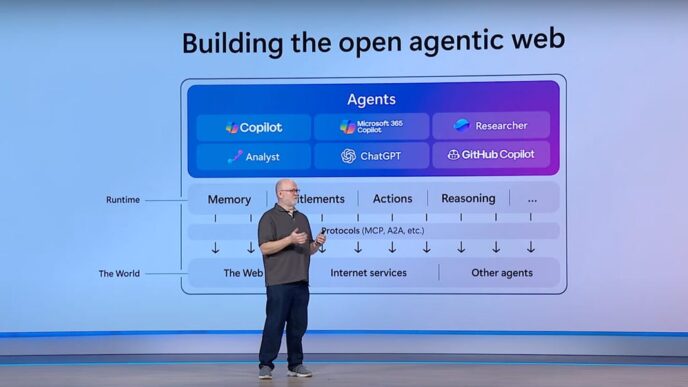Zhihu AI courses boom as Chinese tech pros scramble for AI jobs
Chinese livestream Q&A site Zhihu is hosting paid AI training sessions amid a surge in demand for AI talent. In one recent class, “Eva” taught basics like “next token prediction” and “attention is all you need,” then pushed a 70-hour course for 4,980 yuan ($695). She hyped AI engineer salaries topping 2 million yuan ($279K) yearly — nearly 10x typical local dev pay.
With companies like Alibaba and ByteDance racing to snap up AI experts, Chinese tech workers and students are hunting online classes to break into AI development and application-building. Early courses focused on using tools like ChatGPT or Midjourney. Now they aim for building AI products and landing jobs, boasting slogans like “Become an AI model engineer in 100 days.”
China’s online education market is multibillion-dollar and booming off AI hype — people shell out for courses despite doubts about quality or job guarantees. Lin Zhang from University of New Hampshire said:
“People may not be buying luxury goods, but they are willing to pay for these classes.”
Baidu is pushing AI-heavy summer internships, ByteDance launched an AI data and compute program for researchers, and McKinsey estimates China’s AI workforce demand will grow sixfold by 2030, reaching 6 million skilled workers. AI-related job listings jumped 36% in early 2025.
But formal university AI programs often fall short on cutting-edge skills. Frankie Chen, an AI major, said his coursework skipped recent LLM techniques, so he bought Zhishi Xingqiu influencer materials and practiced coding interviews on LeetCode to land an AI internship.
On social media Xiaohongshu, users swap reading lists, tutorials, and interview tips to break into AI.
“Traditional front-end and back-end engineers will be replaced by LLMs,” Chen said. “I want to plan for the future.”
Yet many complain about online courses’ weak content and exaggerated promises. Some students have demanded refunds on platforms like Heimao Tousu, claiming poor instruction and no jobs. AI guru Li Yizhou’s tutorials were banned last year after backlash over ads and emptiness.
One computer science grad spent 4,000 yuan ($557) on a two-month course that barely delivered practical skills. He preferred free resources that later helped him get a job building LLM apps at a Beijing startup.
Big tech firms are joining the AI education push. Tencent Cloud offers courses on its Hunyuan LLM, and Nvidia runs paid and free AI and deep learning workshops in China.
On Bilibili, some LLM tutorials hit over 1 million views.
But top AI roles still go to PhDs from elite schools or those with known model experience, said Berry Liu, founder of recruiting firm Zzcareer. Self-taught developers fill roles for niche AI apps as AI tools embed deeper into industries.
A Beijing tech programmer told Rest of World:
“My own job is also at risk.”
He’s building an AI chatbot on the side and plans to sell AI tutorials to boost options amid looming layoffs.
China’s AI race has set off a scramble for skills, courses, and side hustles — whether they deliver or not.














